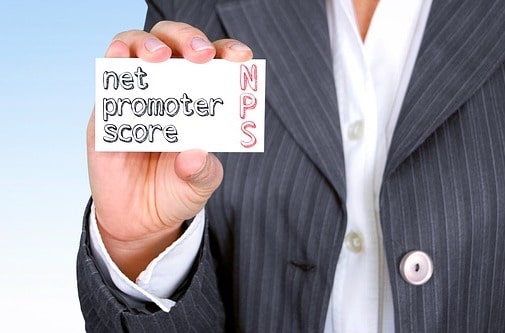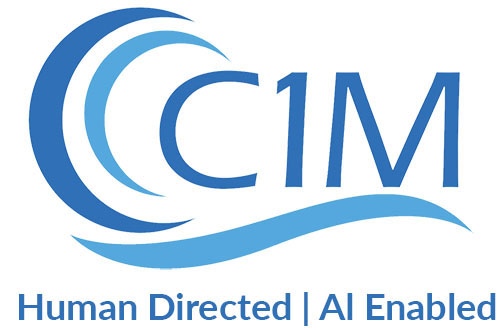
Feedback from your customers plays a critical role in growing your business. It can tell you where your company is doing well and where it’s falling short in the eyes of customers and clients. That’s because business success isn’t just about conversion rates of prospects to customers. Rather, it’s about growing a loyal customer base who returns to your company again and again. So, what’s the best way to measure your customer loyalty? It’s the Net Promoter Score system.
What is the Net Promoter Score System?
The Net Promoter Score (NPS) is a simple system using a single question. When you’re asking your customers for feedback on their recent purchase or service experience, you ask them how likely they are to recommend your company to their friends and family on a scale from 1-10.
The real innovation in the system is how the recommenders are sorted.
- Anyone who gives you a 9 or 10 is a Promoter: they’re a loyal customer who loves your product or services and is likely to actively recommend you to the people they know.
- Those who give you a 7 or 8 is categorized as Passive: they aren’t out there spreading the word about you either negatively or positively, but they are fine being a customer.
- And those who give you a 6 or below is a Detractor: they are unhappy with your company.
You calculate your overall Net Promoter Score by tallying up the number of people in each category and subtracting the percentage of Detractors by the percentage of Promoters. (You don’t include the Passives because they’re unlikely to give a recommendation of any kind).
This score will tell you how likely your customers are to recommend your business to the people they know. You’ll have a high Net Promoter Score if your business has a much higher level of Promoters than Detractors.
You can learn all about the background and history of the Net Promoter Score system in our previous blog post on NPS for healthcare providers.
How NPS Helps Your Business Grow
When you need a recommendation for a product or a service, where’s the first place you usually turn? If you’re like most consumers, you probably ask your friends and family first. “Do you like your doctor?” “How did you find those shoes?” In a marketing-saturated world, we trust ads less than the people we know when we need something.
That’s why it’s not enough to have your customers be mildly satisfied with their experience with your company. If you want to grow, you need loyal customers – the ones who return repeatedly and bring in their friends and family too. Those kinds of customers bring in more revenue without repeated marketing and sales costs.
On the other hand, a business might get plenty of one-time customers but they’re spreading negative word-of-mouth reviews to the people around them. Long-term growth is going to be much more difficult. High rates of customer churn can negatively impact your bottom line.
Net Promoter Score allows you to do two very powerful things: find out how your customers feel about your business, and why they feel that way. This data is hard to come by in other survey forms or purchase data. And it is key to the process of gaining and keeping your customers.
This feedback also allows you to tailor and target your overall digital presence to fit your customers’ needs. Learn more in our Digital Presence YouTube video.
Types of NPS Surveys
Net Promoter Score is a system, not a single survey. There are several types of NPS surveys that can provide deeper insights on your relationships with your customers. Not every type is appropriate for every company or industry. However, combining at least two can give you additional information on your happy and unhappy customers.
Transactional NPS
Transactional NPS (tNPS) surveys are sent out after a customer interaction with your company – they make a purchase, complete a service, or another type of visit or transaction. This kind of NPS survey will give you feedback on product satisfaction, purchase experience, and customer service in the moment.
Relational NPS
This is an NPS survey that is sent out on a regular basis – quarterly, biannually, or yearly – to all your customers. It is not tied to a specific encounter with your company or employees. Instead it measures how your customers feel about your company overall. It can provide a benchmark to measure your success year-over-year as well.
Other Kinds of NPS
Net Promoter Score is a very versatile tool. You can use it to measure pretty much anything you desire. Some larger companies even use it to calculate employee engagement with an employee Net Promoter System (eNPS).
How to Use Net Promoter Score Successfully
Calculating your Net Promoter Score gives you a useful snapshot of data. But it must be an ongoing process to get meaningful information. You should send out an NPS survey after every customer purchase or transaction to get a meaningful measure. And your NPS score itself won’t tell you exactly what you need to improve – it will just give you the data to see if improvements are needed.
Fortunately, there are a few available steps you can take to gather more data to improve your NPS.
1. Ask for Qualitative Feedback
One of the great benefits of the NPS survey is that it’s just one simple question – customers are much less likely to complete long questionnaires. But you can keep the concise question as your first. Then, ask and follow up with 1-3 targeted open-ended questions to follow up.
These questions should ask about the “why” behind the number rating and could touch on topics like customer service, product quality, or other issues. Be sure not to bog this section down with too many vague questions – you want to get quickly to the root of a low NPS score.
2. Implement Closed-Loop Feedback
For feedback to make a difference, your front-line employees need to receive real-time feedback. With a closed-loop system, a negative NPS rating or feedback triggers a review of the issue and an open conversation with the employee who is responsible for that customer. By addressing issues as they come up, you are fixing them before they get worse and create more Detractors for your business.
3. Do Competitor Research
Net Promoter Score is a very widely-used system – no surprise, as it’s incredibly effective. That can make it easier to find information on your peers or competitors in your industry and see how your Net Promoter Scores stack up.
After all, there’s not just one NPS score number that every industry should aim for. It will vary depending on what you’re selling and your market.
Aiming to best your competition’s NPS scores isn’t just about getting to a higher number for the sake of the number itself. The NPS score is just a tool that tells you how your customers think about your company – in individual transactions and as a whole. If you can exceed your peers’ scores, you will have done that by providing a top-notch experience through the whole customer journey.
4. Keep it Short
In order to get the most accurate view of your Net Promoter Score, you need a high survey response rate. The more customers you can get to complete a survey, the more complete your survey data will be. What’s the best way to get a high response rate? Ask your customers to do as little as possible, as their time is valuable- especially to you!
It can be tempting to try to gather as much information as possible in one survey. But think about how much you actually need to ask to get the information you’re looking for. Do you need to ask for demographic data if you already can access that in your CRM? Do you need a question asking for why their experience was negative and how you can fix it, if the answer will be the same for both?
Keeping your surveys concise will actually yield you more data by getting you a higher response rate. You can still get more information from unhappy customers by asking those who leave you very low ratings if you can contact them for more information.
NPS and Online Reputation Management
Your reputation with your customers is what your business is built upon. In a world where anyone can leave a scathing review after an unhappy experience, protecting your reputation by gathering and acting on customer feedback is more important than ever. And that’s just what the Net Promoter System allows you to do.
NPS surveys can also allow you to increase the amount of positive online reviews your business receives on platforms like Google Reviews and Yelp. Simply send a follow-up email to any customer who identifies themselves as a Promoter with a short note asking them to leave you a review on the site most critical to your business. You already know they’re a big fan – you’re just making it easy for them to tell other people about it.
For more information on online reputation management, check out this helpful blog post.
We Can Help
Looking for more personalized help on your digital marketing strategy right now? Schedule a free business review here to find out how we help businesses grow. You can use these insights for inspiration, and let us do the marketing for you.


